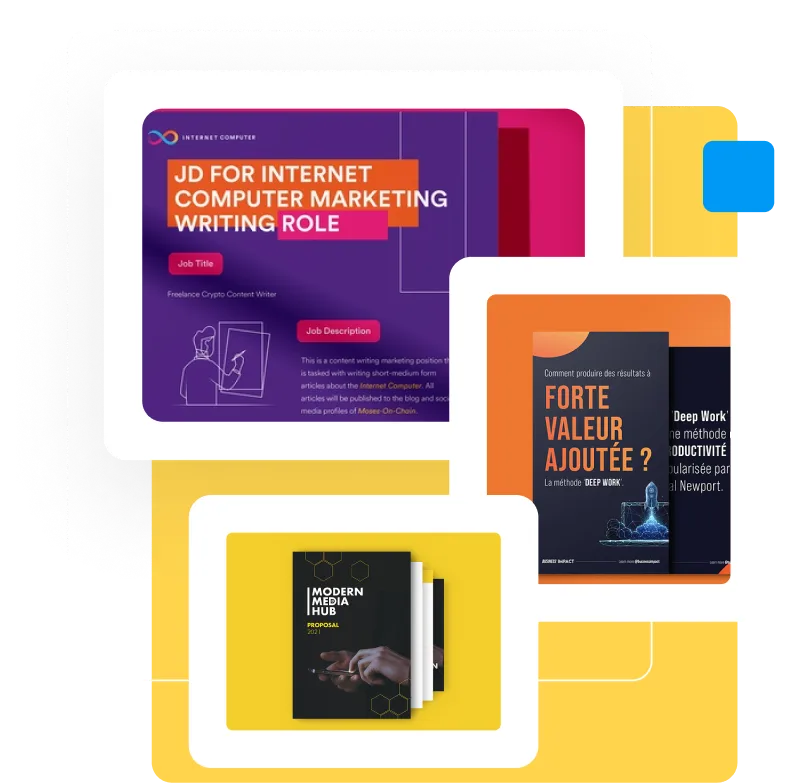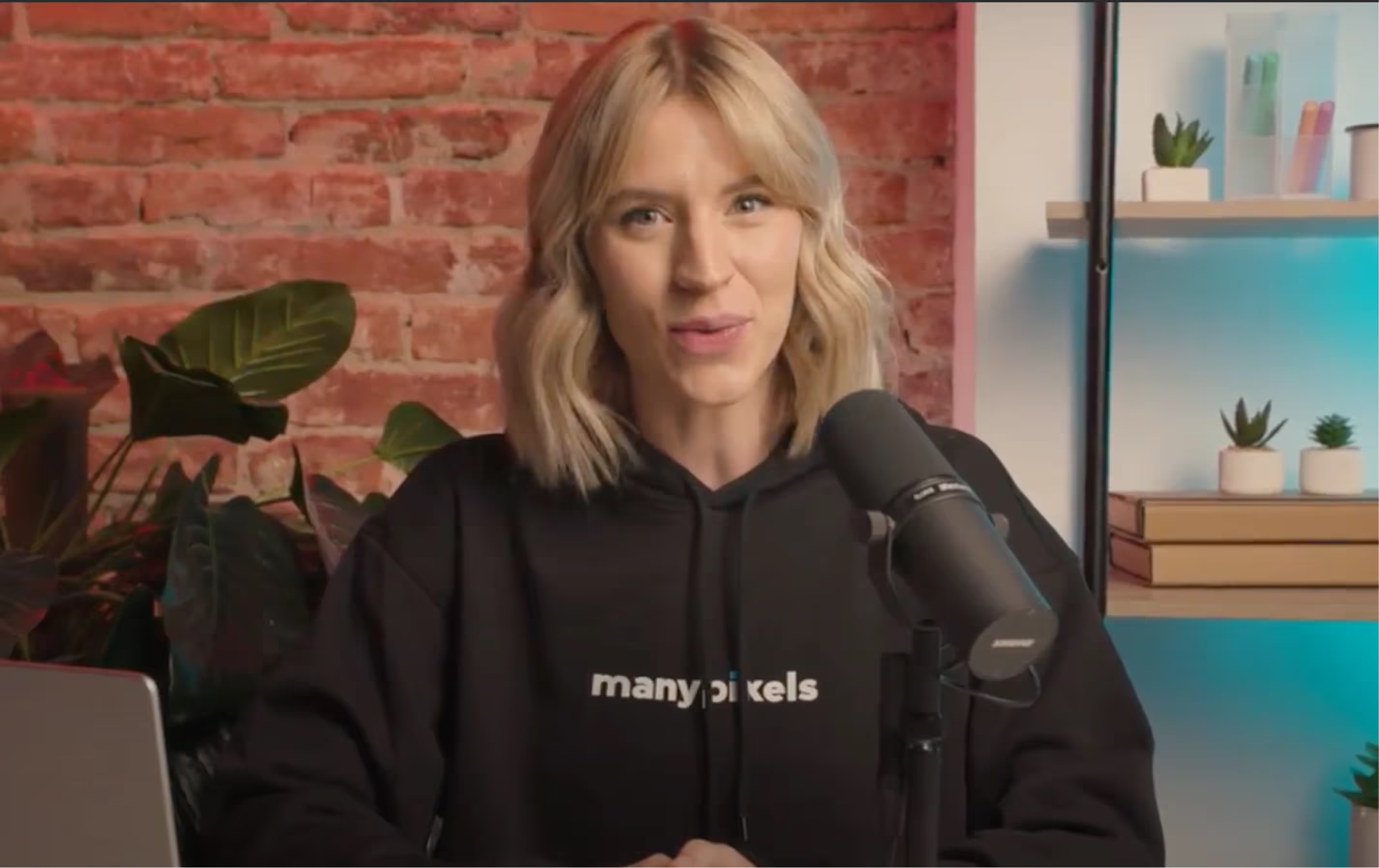

Digital Marketing Platforms Every Marketer Should Know
From social media marketing tools to lead gen and optimization software, here are the most important platforms you need to know as a digital marketer.

.svg)
From digital marketing tools for scheduling posts to search engine crawlers, here are some platforms and software that will save time for every marketer and improve their marketing efforts.
Digital marketing, simply said, is every marketing campaign placed online. From paid ads to content marketing, all types of digital marketing will help a busines reach its target audience and establish a better relationship with them. And of course, it is the only marketing plan that will bring you feedback from the audience.
So, how do you start working your way up in digital marketing? By learning all the inevitable platforms and tools. In this article, we’ve split them in:
- Social media marketing
- SEO platforms and tools
- Email marketing tools
- Landing page and lead generation tools

{{AD_BANNER="/dev/components"}}
Social media marketing
Social media marketing is so prevalent and important, that at this point people think it is equivalent to digital marketing in general.
Still, it is only one of many digital marketing strategies. The more common platforms where you can post your ad campaigns on social media are listed in this section, with some extra tips and marketing automation tactics that will make your efforts easier.
Facebook (+Ads Manager and Pixel)
Where to begin if not with Facebook? It is the most popular (and original) social network, with a current estimate of 2.89 billion active monthly users.
The platform itself offers multiple ways to advertise, such as:
- Image ads
- Video ads
- Poll ads
- In-stream video ads
- Carousels
- Slideshows
- Collection ads
- Instant experience
- Stories
- Messenger ads
- Experience ads, etc.
You can advertise on Facebook by opening a business account, and post, optimize and control the audiences on your ads through Facebook Ads Manager. This helpful tool offers eleven objectives that can help you track the success of your ads and how they align with business goals. Some of them are brand awareness, traffic, reach, engagement, lead generation, received messages, etc.
Another useful tool is Facebook Pixel, which helps you measure the effectiveness of your advertising by understanding the actions people take on your website.
Finally, on Facebook, you can also have an unpaid presence that helps you connect with audiences that follow you, nurture existing customer relationships and answer questions regarding customer issues quickly (and raise awareness for your brand by consistent posting!).
Instagram is owned by Facebook, but it is a completely different ballpark and main audience. The reason for that is that the user base of Instagram is younger than Facebook’s, and has a different ideology and values. Instagram is also a more aesthetics-based platform, so the design of ads requires more skill and planning.
So, different audiences that are interested in different industries gravitate towards Instagram more easily.
Because of its visual focus, Instagram has a particularly significant attraction for specific sorts of consumers. Restaurants, travel agencies, fitness trainers, fashion and beauty, lifestyle and other businesses that more easily rely on pictures in their marketing, are all ideal candidates for establishing an Instagram presence.
Instagram also offers different advertising formats, such as:
- Sponsored posts
- Stories
- Videos
- Reels
- Carousels
- Explore ads
- Collection ads
However, bear in mind that Instagram ads are still posted and managed through Facebook Ads Manager, so even if Instagram is your main advertising channel you'll still need a business account on Facebook.
From one standpoint, Twitter is easier to understand as a digital marketing tool than Facebook, since it consists of one main component: tweets. It is, nevertheless, an art form in its own right. When it comes to Twitter marketing, the use of hashtags is crucial.
Witty digital marketing can help companies build a buzz around a hashtag that will help them get more customers. However, it doesn’t offer a direct return on investment or help raise sales as easily as Facebook or Instagram. It is mostly used to get brand recognition and awareness or to take a standpoint on certain discussions and dilemmas as a brand.
LinkedIn is the official professional social networking platform, and it is much more successful for B2B (business to business) than B2C (business to customer) marketing.
LinkedIn is also perfect for companies and professionals in the information technology industry, SaaS businesses, human resources, real estate, marketing and advertising, Internet, business and counseling, financial services, and more.
B2B marketers realize the possibility of narrowing down the audiences for lead generation on this platform, by the optimization of factors such as location, number of employees, industry and connections. Furthermore, the LinkedIn KPIs or metrics make it easy for tracking and retargeting the goals of campaigns to fit the corporate objectives and purpose of each campaign.
Some of the types of advertisements on LinkedIn are:
- Sponsored content
- Sponsored messaging
- Text ads
- Dynamic ads
TikTok
TikTok might not be everyone’s cup of tea, but it is increasingly more popular for businesses as well. It has more than 800 million app installs, and more brands are starting to profit from it. As of now, brands can advertise through three different ways on TikTok:
- Starting their own channel
- Working with a TikTok influencer
- Posting sponsored content on the platform
The latter is still in a beta phase, so to say, because it is too early to see how well the optimization, targeting and tracking of paid ads on TikTok work. Still, brands owning their own channel can be more easily discovered by the TikTok audience, since it is an app that encourages exploring different related content. Influencers can also help promote your brand.
However, keep in mind that the audience in TikTok is mostly younger and with a smaller consumer power.
Buffer/Hootsuite/HubSpot Marketing Hub & others
The research, design, administration, and scheduling of social media campaigns are a breeze with social management and listening tools. Companies want consistency in their social media marketing, and these solutions allow them to submit material to various networks from a single location. Social media marketing would be much harder to schedule, track and optimize without them.
SEO platforms and tools
The greatest place to start for a novice digital marketer is to learn about keywords, ranking algorithms, ranking criteria, and what it means to have a mobile-friendly website. So, much of what digital marketing firms and campaigns do is geared toward establishing an organic presence.
It seems like it doesn't take long to learn search engine optimization, but engines have new algorithms regularly and there’s always something new to implement or improve. Still, there are many tools available to assist you. It's critical to keep current and learn skills that will benefit you even more once you've mastered the fundamentals.
Google Analytics
Google Analytics is a very fundamental tool that will help you track metrics that tell a lot about your website, its design, the visitors and their habits. And the best thing is that it is a fully free plan, so marketing teams can use this detailed analytics tool to its full potential without extra costs.
You can use Google Analytics to find out how people find your site, what they do while they're there, which pages create the most engagement, and which resources they use the most.
Screaming Frog
Screaming Frog is a web crawling application that lets you experience your website through the eyes of a search engine. That's all you need at times. Screaming Frog is a fantastic resource for digital marketers that require an impartial perspective of a website to identify what SEO components are lacking without having to use a complicated web program.
Ahrefs/SEMRush/Clearscope
If you need keywords and ideas that will help you gain a better organic reach and ranking, these tools are going to do magic. You can explore any URL’s organic keywords, as well as which keywords you have in common with competitors. You can also get suggestions for content improvements and body text keywords to include in your articles.
Email marketing tools and platforms
Contrary to many predictions, emails are still one of the most effective forms of online marketing. With an ROI of more than 4000% and 3.9 billion email users in 2019, especially with an ongoing pandemic, email marketing is incredibly important for the overall success of a business’ marketing strategy.
HubSpot/MailChimp/SendGrid/Litmus & others
Email automation tools will help you easily segment, track and optimize your email marketing efforts. On top of that, they add personalization tools and plenty of templates that will improve the design and effectiveness of your newsletters.
They also have plenty of tools that help with deliverability and improving open rates.
Most of the email automation tools have a vast array of widgets that can help make your emails more accessible as well (text to speech, speech to text, color blindness and dyslexia mode, etc.).
Landing page and lead generation optimization
Landing pages are one of the most important lead generation tactics, and as a digital marketer, you will have to create and optimize these complex marketing tools quite often. But doing them from scratch is a hard feat with zero coding knowledge. Luckily, marketing automation never fails us, and today there are plenty of platforms that will help you design a landing page on a drag-and-drop basis.
Unbounce/Instapage/Leadpages
Templates to build on and customize according to your branding, tracking and optimization tools and metrics, easy and intuitive user interface and experience, as well as affordable pricing, are only a few of the many benefits that come with these tools.
As a digital marketer, you will be able to easily design lead magnets and landing pages for different campaigns and events.
Journalist turned content writer. Based in North Macedonia, aiming to be a digital nomad. Always loved to write, and found my perfect job writing about graphic design, art and creativity. A self-proclaimed film connoisseur, cook and nerd in disguise.
A design solution you will love
Fast & Reliable
Fixed Monthly Rate
Flexible & Scalable
Pro Designers






.jpg)

